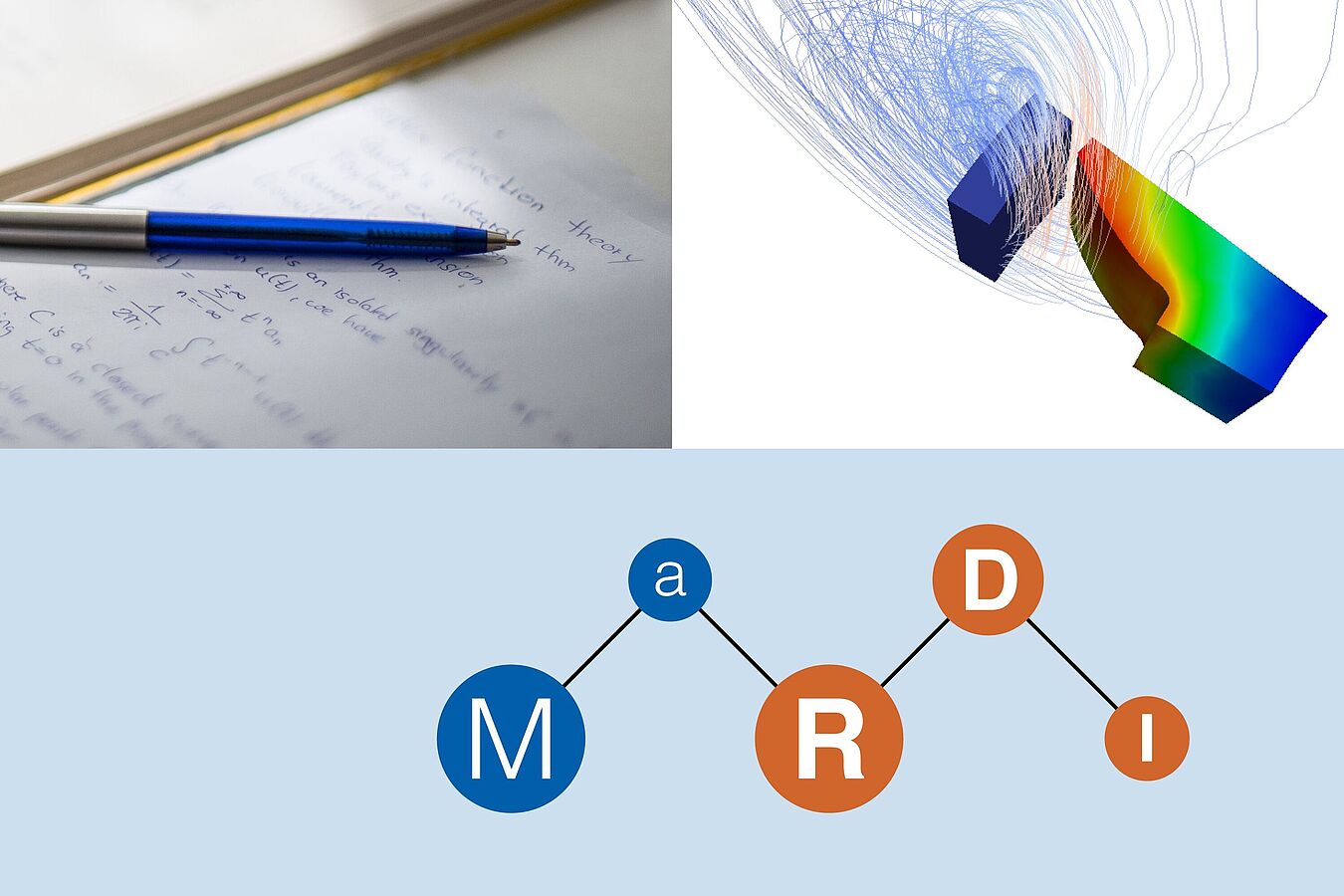For transparent and efficient research, research data should be easily Findable, Accessible, Interoperable and Re-Usable, according to the so-called FAIR principles. At the moment, however, much data is only available locally, project-related and often only for a limited period of time. With the National Research Data Infrastructure NFDI, important data from science and research will be systematically made accessible, interconnected and sustainably usable for the entire German science system. To this end, the Federal Government and the German Federal States provide funding for consortia that develop strategies tailored to different scientific disciplines in order to establish research data management in accordance with the FAIR principles.
Mathematical research data range from databases for special functions and mathematical objects to scientific computing aspects such as models and algorithms. They are highly complex, vast and diverse. Due to the interdisciplinary and abstract nature of mathematics, they are also widely used in other sciences, and thus reduce barriers. Specialised search engines make it possible to find mathematical documents and software, but they are only linked to data to a limited extent. In addition, the volume of data and its growth speed are increasing dynamically with the rapid development of mathematics in the data sciences and the ever-increasing computing power. In various disciplines (such as physics, chemistry, engineering, humanities and life sciences), this leads to increasingly complex mathematical models and mathematical research data.
MaRDI aims to develop methods and tools together with the mathematical community to implement the FAIR principles for mathematical research data. With the MaRDI portal, an infrastructure will be created that enables the systematic back-up, indexing and utilisation of mathematical research data via decentralised and interconntected knowledge and data repositories. MaRDI will thus not only inspire research in mathematics, but will also have a broad impact in other scientific fields.
The consortium is coordinated by the Weierstrass Institute for Applied Analysis and Stochastics (WIAS) in Berlin. It currently includes further 23 partners (universities and research institutes, science infrastructure institutions, clusters of excellence as well as the German Mathematical Society DMV, and the European Mathematical Society EMS).
Prof. Dr. Michael Hintermüller, MaRDI spokesperson and WIAS director, expresses his delight: "MaRDI will play a significant role towards the reproducibility of mathematical research results and the transfer for applications in the context of interdisciplinary research".
DMV President Prof. Dr. Ilka Agricola emphasises that MaRDI will have a unique dual function in the mathematical community - as a quality-assured mathematical data library and at the same time as a digital service portal.


